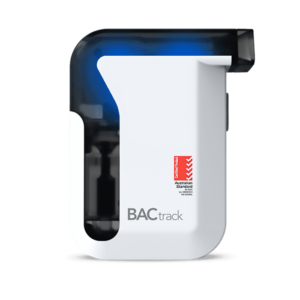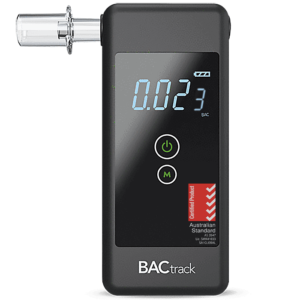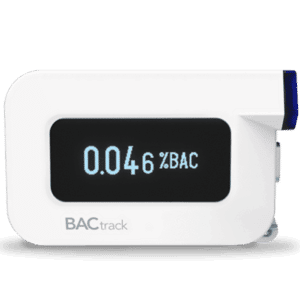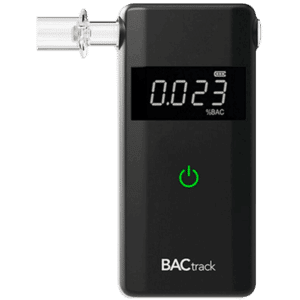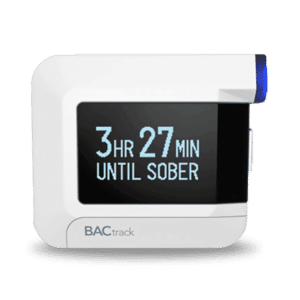Alcohol at Work: The Importance of Addressing Alcohol Consumption in the Workplace
08 April, 2024

Addressing alcohol at work is crucial for maintaining a safe and productive environment. Employers can prevent accidents, improve employee performance, and reduce absenteeism by addressing this issue. Moreover, it helps to preserve a healthy workplace culture by promoting responsible behaviour and mutual respect among colleagues. Having a clear policy and alcohol testing is essential to ensure that employees understand the expectations and consequences of alcohol consumption at work.
Alcohol can have significant effects on the body and mind. When a person consumes alcohol, it enters the bloodstream and travels to the brain. This can result in decreased coordination and difficulty thinking clearly. Moreover, alcohol can affect mood, leading to changes in behaviour and emotions. Long-term alcohol use can also have health consequences. This article will present the influence of alcohol in the workplace, the necessity of implementing an alcohol policy, and the various methods of alcohol testing.
The Influence of Alcohol at Work
The influence of alcohol at work can be significant and detrimental. Firstly, it often leads to decreased productivity among employees. When people consume alcohol, their cognitive functions and decision-making abilities can become impaired, resulting in a decrease in task efficiency. This can hinder the overall progress of projects and tasks within the workplace.
Secondly, alcohol intake heightens safety risks. Workers under the influence of alcohol may experience impaired motor skills and judgment, increasing the likelihood of workplace accidents. These accidents can cause injury to employees and damage to property, posing a threat to the well-being of all individuals in the workplace.
Thirdly, alcohol issues can strain workplace relationships and create a hostile atmosphere. Interpersonal conflicts may arise or escalate due to alcohol abuse or intake, leading to confrontations among colleagues. This can disrupt teamwork and collaboration, impacting the overall harmony within the workplace. Lastly, alcohol-related incidents can tarnish the reputation of both employees and the company, damaging relationships with clients, partners, and stakeholders.
Effects of Alcohol on Employees
- Alcohol intake can lead to impaired cognitive function. It hinders the ability of the employee to think clearly, make rational decisions, and solve problems effectively.
- Consumption of alcohol can diminish the coordination and fine motor skills of the worker. It increases the likelihood of accidents and errors in the workplace.
- Alcohol affects the ability of the employee to assess situations accurately and make sound decisions, leading to potentially risky or inappropriate behaviour.
- The impact of alcohol can result in shortened attention spans and difficulty concentrating on tasks.
- Alcohol slows down reflexes and reaction times, making employees slower to respond to changes or emergencies.

Importance of Having a Clear Policy for Alcohol at Work
There are various importance of having a clear policy for alcohol at work. For instance, the policy statement helps in maintaining workplace safety and occupational health. This prevents alcoholic employees from making critical decisions while under the influence of alcohol. Additionally, clear guidelines on the consumption of alcohol can promote a productive workplace. Workers can focus on their tasks without impairment or distraction.
Moreover, implementing workplace policies ensures that a company business complies with laws, industrial agreements, and special requirements. This safeguards the organisation from potential legal issues, challenges, and liabilities. Also, the guideline contributes to upholding the professional image of the organisation. It sets standards for employee behaviour and professionalism.
Furthermore, the workplace policy supports the well-being of employees. This discourages harmful alcohol consumption, which can have an adverse impact or risk to health. In addition, an alcohol policy ensures that all employees know the expectations and consequences of alcohol intake. This promotes transparency and accountability within the organisation.
Components of the Policy
A workplace alcohol policy comprises critical components. The guideline should begin with a clear and direct statement outlining the stance of the organisation on alcohol consumption. It should define the scope of its application, whether it applies to all workers, visitors, or contractors. Also, workplaces may add drug policies to address drug issues (illegal drugs or prescription medications).
Consequently, the policy needs to emphasise the commitment of the organisation or business owners to comply with relevant laws and regulations. This minimises potential liabilities. Furthermore, clearly defining the expectations and responsibilities of employees is essential. This includes the expectations to maintain sobriety during work hours.

How to Test for Alcohol at Work?
Employers can test for alcohol at work using several testing procedures. Firstly, alcohol breath tests. It uses a breathalyser to measure the Blood Alcohol Concentration (BAC) of the employee. This approach is non-invasive and easy to administer. The worker simply breathes into the device, displaying the results within minutes.
Secondly, urine testing. It involves analysing urine samples for the presence of alcohol metabolites, such as Ethyl Glucuronide (EtG) and Ethyl Sulfate (EtS). Thirdly, oral fluid or saliva testing involves collecting saliva samples. This method is non-invasive and can detect recent alcohol consumption. Also, it is becoming popular due to its ease of use and easy sample collection.
Fourthly, blood testing is a method that directly measures the concentration of alcohol in the bloodstream. While this approach is highly accurate, it is more intrusive and requires medical practitioners to collect samples. Lastly, hair testing can provide a historical record of alcohol consumption over an extended period. Thus, it is helpful in identifying long-term drinking habits.
Implications for Breaching the Policy
When an employee breaches the alcohol policy at work, it can have various consequences. Initially, they might receive a verbal warning from their supervisor, clearly explaining the breach and its potential repercussions. If the behaviour persists, a written warning is issued, outlining the violation and the possibility of further disciplinary action.
In more severe cases, the employer might find grounds to transfer or demote the worker due to their actions. The company may also put the worker on probation, closely watching them and imposing stricter conditions on their job. The company may terminate the employee if the breaches persist despite these actions.
Conclusion
In conclusion, the influence of alcohol at work can be harmful, affecting productivity, safety, and relationships. Having a clear alcohol policy is crucial to mitigate these risks. The policy should include explicit statements about alcohol consumption, scope, legal compliance, and employee responsibilities. When an employee violates the alcohol policy, consequences follow. They may get verbal or written warnings. In severe cases, they might face demotion, transfer, or probation. If the problem persists, termination could be the outcome.
There are several methods employers can use to test for alcohol. These include breath tests, urine tests, saliva tests, blood tests, and hair tests. Each method has its advantages and considerations, such as accuracy, invasiveness, and detection window. Employers should choose the most appropriate method based on their specific needs and the circumstances of the workplace. Regular testing can help ensure a safe and productive work environment by identifying and addressing alcohol-related issues promptly.


















